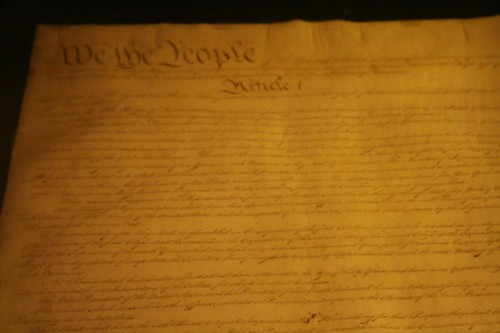Understanding the 14th Amendment of US Constitution Used to Bar Trump from Office
Constitution #Constitution

Last Updated: December 20, 2023, 12:02 IST
Washington D.C., United States of America (USA)

A general view of the U.S. Supreme Court building plaza on the first day of the court’s new term in Washington, U.S. October 3, 2022. (Reuters)
A top court in the US state of Colorado made history Tuesday with an unprecedented ruling that former President Donald Trump is constitutionally ineligible to run in 2024 because of his involvement in the January 2021 assault on the Capitol.
The court’s decision — which Trump’s campaign said it would appeal — drew immediate condemnation from Republicans across the line. The ruling, which only applies to the Colorado primary ballot, is the first of a number of legal actions across the country to invoke the US Constitution’s 14th Amendment, which bars from office anyone formerly sworn to protect the country who later engages in insurrection.
What’s the 14th Amendment?
Three years after the Civil War ended, the 14th Amendment to the US Constitution was ratified in 1868. Section 3 of that amendment wrote into the Constitution the principle President Abraham Lincoln set out just three months after the first shots were fired in the Civil War, according to AP. On July 4, 1861, Lincoln spoke to US Congress, declaring that “when ballots have fairly, and constitutionally, decided, there can be no successful appeal back to bullets.”
The text of Section 3 of the 14th Amendment states, in full: “No person shall be a Senator or Representative in Congress, or elector of President and Vice-President, or hold any office, civil or military, under the United States, or under any State, who, having previously taken an oath, as a member of Congress, or as an officer of the United States, or as a member of any State legislature, or as an executive or judicial officer of any State, to support the Constitution of the United States, shall have engaged in insurrection or rebellion against the same, or given aid or comfort to the enemies thereof. But Congress may by a vote of two-thirds of each House, remove such disability.”
‘Law is Clear’
On Tuesday, former White House lawyer Ty Cobb predicted the US Supreme Court could rule “9-0” in favour of Trump in a potential appeal of the Colorado Supreme Court’s new ruling. “I think this case will be handled quickly, I think it could be 9-0 in the Supreme Court for Trump,” Cobb said in an interview on CNN, adding later, “I do believe it could be 9-0 because I think the law is clear.”
“The real key issue in this case is — is Trump an officer in the United States in the context in which that term is used in the Article Three of the 14th Amendment,” Cobbs said. “And in 2010, Chief Justice Roberts explained in free enterprise that people don’t vote for officers of the United States.” The legal expert also referred to several US Supreme Court decisions that do not conclude officers include the president or vice president in this context.
(With agency inputs)
RohitRohit is sub-editor at News18.com and covers international news. He previously worked with Asian News International (ANI). He is interested in world a…Read More